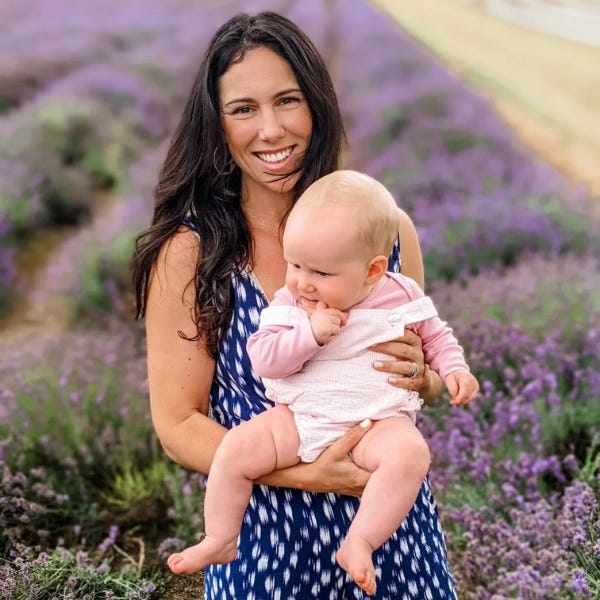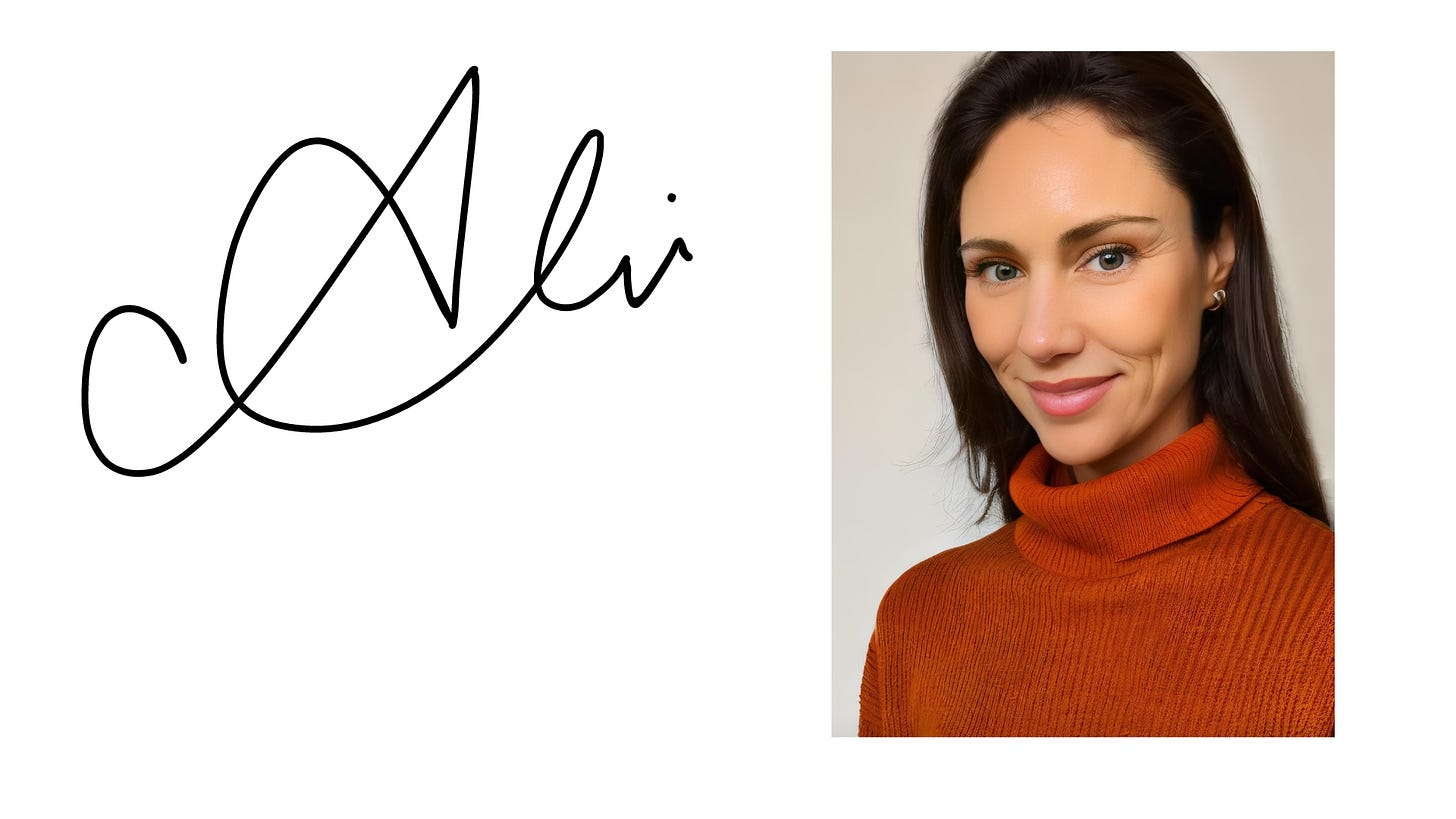How your parenting style affects your children's - and your grandchildren's - future wellbeing
Showing your child love has a profound impact on their future physical and emotional wellbeing. So, can you start a love revolution in your family? And are you showing your love properly?

How often do you tell your little one ‘I love you’? I remember the first time my little girl Summer engaged with one of my many ‘I love you's’ just before she turned two - declaring ‘I TOO MUMMY!’ from her car seat. I had to pull over as I laughed and cried, turning round to her to squeeze her little legs as she giggled. I sent voice notes to my husband and my own Mum, letting them know it finally happened!
I love my little one with passion - and by that I mean I am passionate about showing it. I was shown so much love (and still am) by my parents - and I know how lucky I am. I’ve realised in the last few years that my mum and dad didn’t get as many cuddles, kisses or words of affirmation as they gave me.
So when I discovered a study by the University of Oregon* that found "positive parenting" - the parenting style that many of us follow now including factors like showing warmth, openly stating love and being involved in our children's activities and development, not only has a positive impact on our children, but will equally have a positive effect on the way our own children will parent their children, I was fascinated. Nurturing and showing love and interest in our children early in life has a huge impact on their future physical and emotional health; a 2022 study** found that positive parenting styles decreased the risk of obesity later in life. And another study*** found that children whose mothers nurtured them early in life have brains with a larger hippocampus, a key brain region important for learning, memory and response to stress.
I only have one grandparent left - my grandmother is a complex character. She was loving, particularly when my sister and I were small, but as we grew older, I began to see how difficult she found it to say she loves us; we often get birthday cards signed “To Ali… from Nan”. I remember her shock at seeing the teenage me kiss, hug and tell my friends ‘…love you!’ as we waved goodbye to each other in our midriff baring jogging bottoms and tank tops, which she was as equally mystified at. My mum had to explain to her - this generation love their friends and they show it!
My sister and I, in comparison cannot stop gushing to each other, and our parents, husbands, friends and children, how much we love and value each other. We hug, give compliments, give credit and give thanks to each other regularly. Perhaps the millennial generation as a whole find it easier to say, or to show ‘I love you’. After all, my grandmother was a war evacuee. She was raised in a very different time, by a very different generation, which had very different challenges.
And of course, everyone has different love languages (I speak to Ellie Austin-Williams about these in my podcast here with regards to an interesting way to think of gift ideas). But I know that my own mum didn’t receive anywhere near as much love (through any of the different love languages) as I did growing up.
Paying it forward
Looking back I now realise that my own mother made a conscious decision to show her love to her children. She and my Dad showed it through their words, their cuddles, the time they spent with us playing imaginary games, setting up crafts for us and baking cakes with us. And I see them do exactly the same now with their grandchild. I’m lucky enough to never have wondered if my parents love me.
Their openness to show me and my sister love had a huge affect on me. In feeling loved by them, I believed I was worthy of love in relationships. And in turn, now I have my own family I love showing love to my little one. The findings in the University of Oregon’s study was an exciting revelation for parenting - especially if you were not brought up in an openly loving household yourself, or sadly, an abusive or empty household.
I am in awe at how brave my parents were to choose love. The way I parent my little girl so openly with love, touch, and words of care, and the patience and empathy I have for her big emotions are second nature to me, because I learnt and observed it from my parents.
In essence, my Mum and Dad’s style of parenting has impacted and set up my own little girl’s future wellbeing.
If you are taking that brave leap to parent with warmth, patience and big love, it may be a mindful, conscious and therefore potentially effortful decision. It may feel unnatural, or uncomfortable at first. But in doing so, you are not only creating a loving childhood for your children which can result in greater wellbeing later in life, but you are setting your children’s children up for the same success too. A love revolution if you will!
How do we love more?
I believe that in relationships in general, it can help to first understand your own love language, and also understand the other person’s. If you aren’t speaking the same language, you won’t understand each other and conflict can ensue. Knowing what you need to feel loved and communicating that to the other person, equips them with the tools they need to show you they love you, and vice versa! It’s no good having a partner who each week mows the lawn, as they rev up the mower thinking how much their act of service will help you out and show you how much they care, while you are sitting inside with the fire going, wishing they would come inside so you could have a cuddle together.
I’m not sure what love language Summer speaks yet. In time it will become more clear - as she grows older she might tell me she loves me multiple times a day, like I do to the people I love. Or she might make me cups of tea, with small acts of loving service like her Dad. Until then, I try to mindfully speak every love language to her to ensure she feels cared for completely and holistically.
What is your love language?
Words of affirmation: You want and need to hear someone tell you how they feel about you. You love to hear (and often say) ‘I love you’.
Gifts: Thoughtful gifts show you that someone has thought about you and values you.
Quality Time: You feel loved when someone wants to spend time with you - and not just empty or ‘leftover’ time - real time dedicated to each other.
Acts of service: You feel loved when someone makes the effort to make your life easier by fixing something, or doing something for you like making a cup of tea.
Touch: You love to be cuddled, hugged, tickled, stroked. You’d always prefer to hold hands than not, and often find yourself touching others lovingly too.
What love language do you speak to your children?
Words of affirmation: You tell them how you feel about them, often saying ‘I love you’. You might also say ‘I am so proud of you’, or ‘I have so much fun with you’.
Gifts: You buy your little one lots of presents, or this could also look like always make sure they have everything they need.
Quality Time: You spend time with them playing, reading, crafting and creating - doing things they like doing and helping them to develop.
Acts of service: You care for them - baths, making healthy dinners, clean clothes. All of these are acts of service because you love them.
Touch: You give your little one cuddles, stroke their hair, hold their hand and are never the first to let go!





